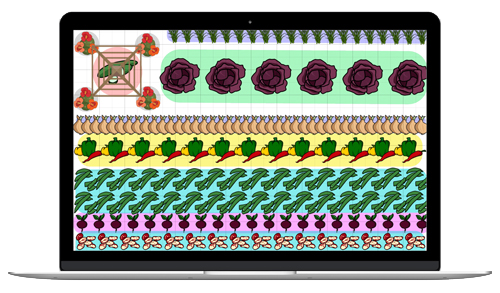
Grow crisp, refreshing cucumbers with this easy guide
The Almanac Garden Planner - Use It Free for 7 Days!
Plan your 2025 garden with our award-winning Garden Planner.
Types
- ‘Boston Pickling’ (vine) is our favorite heirloom variety bred especially for pickling.
- ‘Burpless Bush Hybrid’ (bush) is good for small gardens, pots, or pickling.
- ‘Bush Crop’ (bush) is a dwarf variety with a high yield. Great for eating fresh.
- ‘Calypso’ (vine) is disease-resistant and has a high yield. Perfect for pickling.
- ‘Lemon’ (vine) produces round, yellow, super-sweet fruits. Fun for kids!
- ‘Parisian Pickling’ (vine) produces long, thin cucumbers perfect for making gherkins or cornichons.
- ‘Sweet Success’ (vine) is good for greenhouses, as it requires no pollinators. Produces seedless fruit.
Cooking Notes
- See our section on pickling with lots of recipes and ideas.
- Enjoy our fun video on How to Make Easy Refrigerator Dill Pickles!
ADVERTISEMENT
I wonder why English cucumbers seem to grow nice and even all around for up to 4" but then...
The start to curl into weird shapes and become very thick at the ends while still attached to stem.
Any idea as to why?
In grocery stores they look straight and almost perfect.
I never had problem with growing good crops, just the shapes.
Thanks to anyone who can help :-)
P.S. I also live in Canada and my friend with a very green thumb, has similar "problem".
Hi, Ela: Thanks for this fantastic question! One thing that may be happening concerns the fact that English cucumbers are self-fruiting, not in the sense that they pollinate themselves (as self-fruiting often means), but that they don’t need pollination. For this reason, they produce only female flowers. If a bee or the wind or whatever comes along and pollinates that flower, then the resulting fruit will usually be misshapen in some way. So if your cukes are not only not straight, but also bulging or curving, etc., then you may have to take steps to prevent the flowers from being pollinated. However, if your cukes continue to be of uniform diameter as they curve, then the solution may be somewhat more straightforward: gravity. Just grow them from a trellis so that they hang down, and gravity will hopefully keep pulling them down on the straight and narrow—or at least more than they appear to be now. Thanks again, and good luck!
Thank you very much for a speedy answer and tips.
I didn't know about self-fruiting.
Now, that you explained the cause of misshapen cucumbers, I think the "external powers" have a lot to do with that since I tried growing them on trellis, netting, on the ground...You name it, I tried it :-)
I really like your website and all the neat and useful information.
I started growing cucumbers on March 8 in western Canada, they're sprouts now but I haven't seen much growth beyond that. When should I look into supports, how often should I water them, how should I water them, and will they be fine being grown indoors in a pot moved outdoors as weather permits?
Hi, Jackson: Be sure to read all of the cuke info above about care and watering. They can be moved outdoors OK, but well after the possibility for frost has passed; to find your last frost date, go here: http://www.almanac.com/content/frost-chart-canada. Sometimes the reason for slow cuke growth is simply that they are not warm enough. Cukes need both sun and warmth, but there is a difference between the two. Try using a (low) heating pad underneath, or just put them higher up in the room (heat rises) if possible. Thanks for asking, and good luck!
thank you for educating but please may you mention the deasese and its suitable
I live in Southern California. I'm growing cucumbers. They've been doing good. My question is, what is the ending of the season?
You can find out the recommended times to plant and harvest in your area, based on local climate, by going to this page and putting in your zip code.
http://www.almanac.com/gardening/planting-dates/
For San Diego, for example, sowing cucumber seeds outdoors can be done in October, for a harvest in mid-November through December. Seeds can be sown indoors the month of January, as well as sown outdoors the first half of February, for a harvest from mid-April through mid-May.
Aren't cucumbers a fruit, not a vegetable?
Botanically speaking, cucumbers are a fruit, developing from the flower and containing seeds. But as far as seed catalogs and salads, they are treated as a vegetable, in part because they have a more savory than sweet taste.












